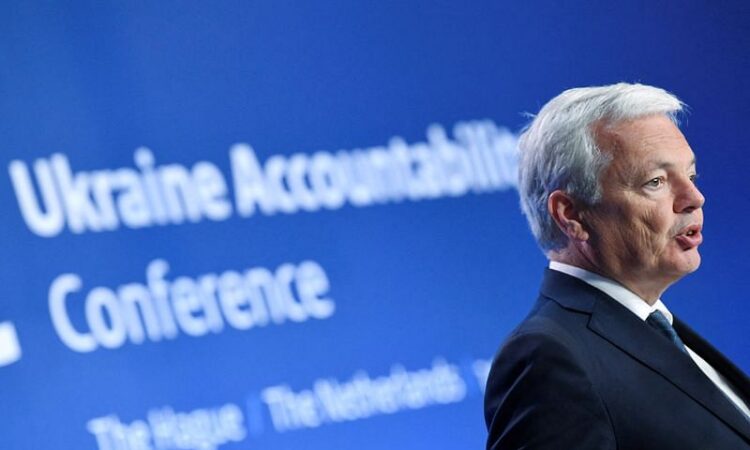
New pro-EU Prime Minister Donald Tusk has vowed to restore the rule of law and get the EU funds released. But he faces resistance from supporters and allies of the former ruling party, who include President Andrzej Duda and some high-profile judges.
“We have confirmation from the European Commission – Poland meets the last three conditions necessary for the full mobilisation of structural funds – EUR 76 billion for the implementation of programs until 2027,” Funds and Regional Policy Minister Katarzyna Pelczynska-Nalecz posted on social media platform X.
The cohesion funds in question are meant to raise the standard of living in the EU’s poorer regions.
The European Commission said Poland had officially informed it that it believed it had fulfilled the rule-of-law conditions necessary to get the money, but that this was still being assessed.
“We are analysing the letter submitted by the Polish authorities to assess whether Poland fulfils the enabling condition in the area of judicial independence,” the Commission said in an email. “The Commission has three months to make this assessment.”
Tusk met the EU’s chief executive in December and announced that the bloc would transfer a first 5 billion euros of aid.
This money comes free of the EU’s usual rule-of-law conditions and is part of Poland’s 60-billion-euro share of the bloc’s COVID recovery stimulus.
EU Justice Commissioner Didier Reynders had said in December that Poland needed “some time” to improve the independence of the judiciary so the EU could disburse more funds.
HOPE
During a visit to Warsaw on Friday, Reynders said during a joint press conference with Polish Justice Minister Adam Bodnar that he hoped the European Commission would soon be able to approve the first application for EU funds from Poland.
A senior official in the new Polish government told Reuters before the briefing that the cabinet hoped some of the issues could be addressed without passing new laws which could be vetoed by Duda.
“We are completely relaxed that it is all going in the right direction,” the official said. “Politically, we have it agreed with the Commission that some things will be addressed without new laws.”
Asked about this possibility, Reynders said that in the case of Duda vetoing new laws, Brussels and Warsaw would have to see what they could do about EU funds.
“We remain in dialogue with the European Commission, we are taking further steps to achieve milestones … We are primarily interested in restoring the rule of law for citizens,” Bodnar said.
He added that one of the changes planned in the process was separating the functions of the justice minister and the prosecutor general.
The prosecutor general will be appointed by the lower house of parliament with the consent of the upper house for a six-year term without the possibility of renewal, according to the draft bill published by the ministry.
After a meeting with Reynders, Michal Kobosko, a lawmaker from the coalition government, told state-run news agency PAP he thought the European Commission may unblock funds even if Duda were to veto legislation aimed at restoring the rule of law.
“I have the impression that the European Commission may be open to unblocking funds for Poland, also in a situation where the laws are vetoed by the president,” he said.
On Friday, PiS lawmakers said they had asked for a vote of no-confidence in Bodnar.
($1 = 0.9187 euro)
(Reporting by Anna Wlodarczak-Semczuk, Anna Koper and Alan Charlish in Warsaw and Gabriela Baczynska in Brussels; Editing by Nick Macfie, Mark Potter and Deepa Babington)
Disclaimer: This report is auto generated from the Reuters news service. ThePrint holds no responsibilty for its content.






